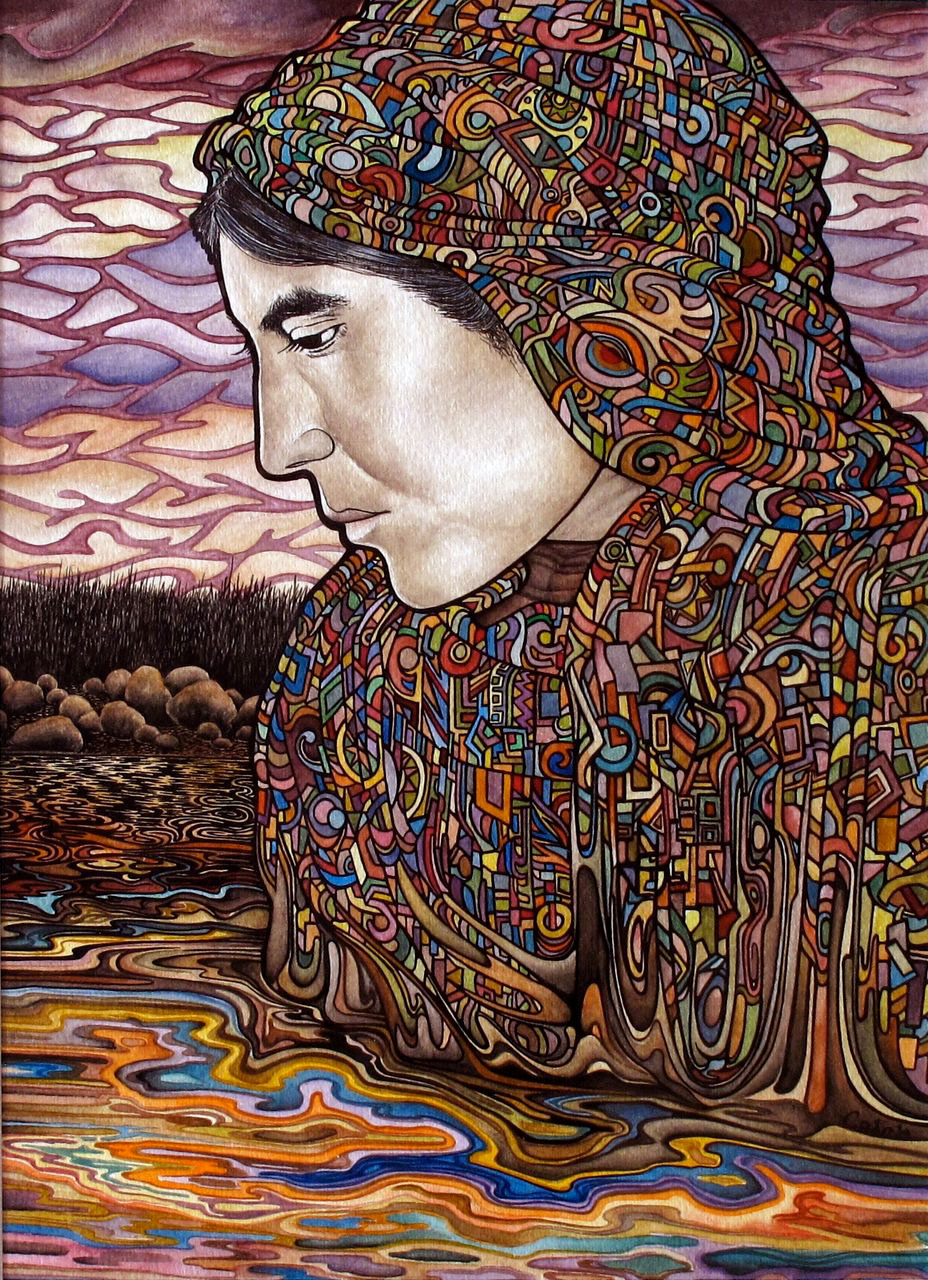






Documented agreements and treaties swiftly lose their legitimacy when the smallest hope of natural resources is discovered. With militarized leverage at their backs, corporate powers have always acquired unimaginable clout in this arena where their entitled pursuits remain the neo-colonial rule of the land. With such empowered levels of greed let loose to wreak havoc, it is obvious that there's no longer any local or foreign untouched wellspring out of reach. Whether access to the land be obtained through bypassed treaties, illegal land grabs or, as in the case of Standing Rock, contracted military might, tribal and indigenous lands are continuously destroyed without conscience or concern of repercussions.
With their lands flooded by hydro dams, deforested through illegal lumber exports and, given over to cattle ranching, palm oil plantations, mine tailing and oil spills, it is so often the indigenous and tribal people, who are the first to lose in the case of an environmental disaster. Those whose dependency on the land far exceeds those suits of multi-billion dollar industries, are often the ones left with the responsibility to clean up the messes, as has been the case in the aftermath of Peru’s state-run pipeline which has spilled seven times in 2016 alone. The Amazonian people have been left with the task of cleaning up their own river systems. This is exactly how big oil keeps its promise.
Oil spills do not simply effect ecosystems and wildlife, but put the very livelihood and survival of vast amounts of indigenous peoples at risk. Land contamination, crop destruction, poisoned fish, and spoiled drinking water are the result of corporate industry’s massive disregard for the increasing fragility of indigenous people throughout the world.
Nearly two years ago a stand off, that won’t soon be forgotten, began with 39 horseback riders riding 29 miles from Fort Yates to Cannonball, North Dakota, where the Sacred Rock Camp was founded along the proposed pathway of the Dakota Access Pipeline. It was the Lakota youth who initiated the movement, but the ripple effect saw all walks of people from around the world standing in solidarity against the big oil giant. Never before has such a mixed gathering of tribes come together for one cause. Water is Life! This altruistic anthem rings soundly worldwide. The familiar slogan was being repeated from as far away as West Papua; another people group that know all too well about foreign oppression and raped resources. Standing Rock wasn’t simply about one pipeline or one community’s ignored plea for the right to clean water, preserved sacred land and respected treaties. I believe the event itself is the precursor of indigenous movements to follow. Much like the Xingu tribes in Brazil who have been fighting, both legally and physically, the Belo Monte dam for decades.
The ongoing industrial crimes against indigenous people throughout the world needs to be addressed with far greater sensitivity, detail to environmental impacts, cultural impacts and attention to land agreements and treaties already put in place.
As Thomas King notes, “Native history in North America as writ has never really been about Native people. It’s been about Whites and their needs and desires. What Native peoples wanted has never been a vital concern, has never been a political or social priority.”



